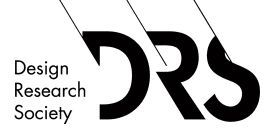contributions
Navigating multiple centers of power in R&D for public education
ANGEVINE, Colin
Cosunvine Consulting, LLC
colinangevine@gmail.com
Presentation
Abstract
How do collaborative design projects manage competing needs and power dynamics? In this coffee time session, I will present a brief case study of a partnership among five K-12 public school districts in an inclusive R&D process to address a shared problem of practice. This case study will illustrate multiple perspectives of participating stakeholders in order to provoke a discussion around the challenges of prioritizing a clear end user and navigating multiple centers of power.
Students may be the clearest end user of R&D in education: it is their learning experience that is intended to benefit from new interventions. However some stakeholders focus on the role of school district leaders (who are necessary for redesigning systems that support new interventions), teachers and school principals (who play critical roles in implementing interventions and redesigned systems), or parents and community members (who depend on successful outcomes from the local school district).
This tangled skein of perspectives provides a rich context for discussion. How do pluriversal designers navigate such power dynamics? In what ways are compulsory, public systems, like K-12 education, fundamentally projects of a one world ontology, and how might we successfully decolonize design within such boundaries?
K-12 education; co-design; power dynamics
About the Authors
Colin Angevine is a white, cis-male, able-bodied, United States citizen based in Tacoma, WA, who natively speaks English. These elements of his identity constitute layers of privilege that have shaped the way he moves through the world. Furthermore, they are reflective of those who historically have been gatekeepers and decision-makers in traditional models of R&D for public education. The emergence of researcher-practitioner partnerships, co-design, user-centered design, and community-led design in K-12 is decentering those who share that privilege in order to redistribute power more equitably. Colin’s work as a facilitator, consultant, educator, and researcher supports this transformation specifically, and the shared struggle toward social justice more generally.
Colin’s perspective draws from previous work experiences: as an educator (in middle and high schools), a technologist (in edtech and legal tech startups), and as a researcher (in graduate studies of Learning Sciences and Technologies). Prior to beginning an independent consulting practice, Colin was the project director for Challenge Collaboratives at Digital Promise, where he developed and facilitated new models for R&D at the intersection of educators, researchers, and developers in education.

